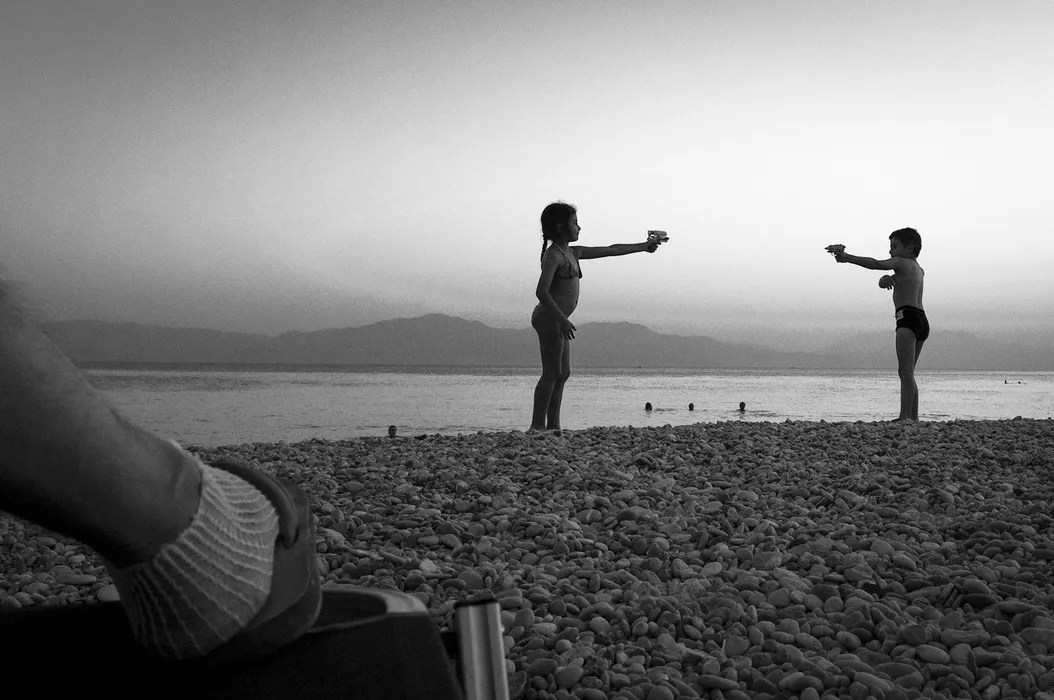
Since the October 7 attacks, the Israel-Palestine conflict has intensified online, revealing key insights for digital activists.
Last week I interviewed my colleague Lucas Febraro for DiEM25, to get his take on the online conflict over Gaza. Lucas is DiEM25's communications director, and a seasoned PR professional with a very strategic outlook on where the conflict is going... and what activists pushing for peace in the Middle East need to do to win.
Here’s an edited transcript of our chat. Or jump to the end for the video.
* * *
The power of social media
Mehran Khalili: Why is social media critical to the outcome of this conflict?
Lucas Febraro: Saying social media doesn't matter is like saying what happens on TV or in newspapers doesn't matter. Billions of people are active on social media. For many, it's their only contact with political information. They don't read newspapers; they don't consume mainstream media much. They don't trust politicians. So, especially for younger people, social media is the only way in.
Mehran: Yeah. According to Pew Research, 25 percent of US adults under 30 now regularly get their news from TikTok.
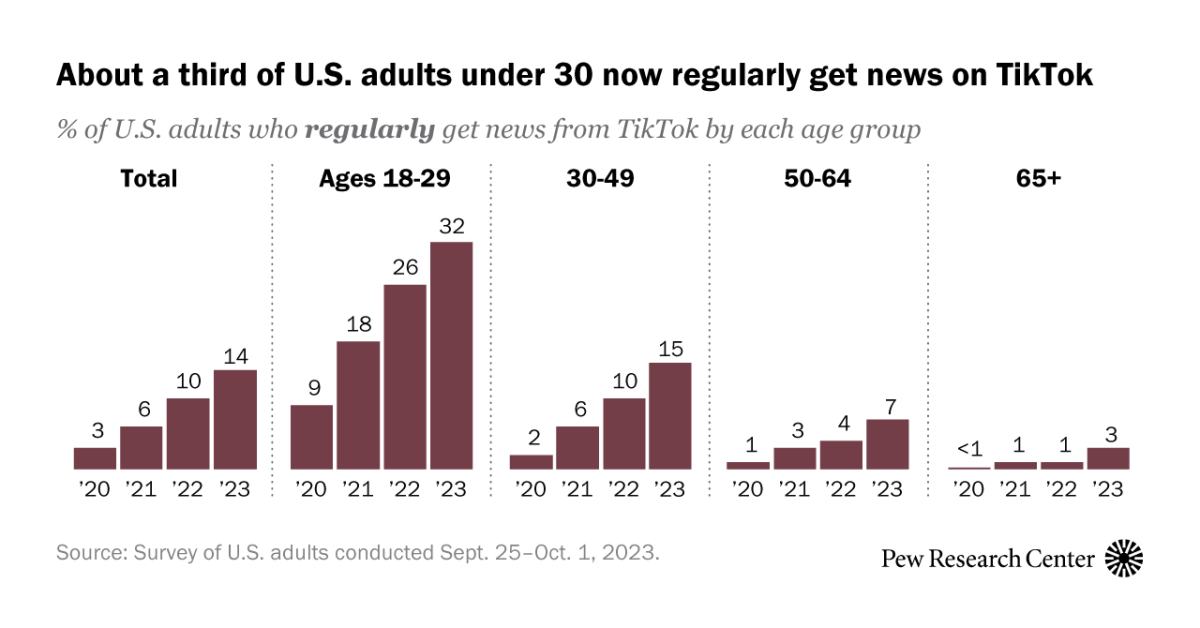
Lucas: If you hear that for the first time and you're not active on TikTok, it might sound terrifying. Yet I've seen journalistic content on TikTok made by amateurs, sometimes teenagers, that's often much better informed than what mainstream journalists are putting out. Especially on issues like Israel-Palestine.
I live in Germany. Here the mainstream media lies through their teeth and copies and pastes Israel’s press releases. Where would we be in Germany right now, if it wasn't for social media? A much worse place.
And that's without even starting to talk about how [social media] empowers people on the ground in Gaza to send those horrifying images [of Israel's bombardment] that we’re consuming on a daily basis right now. CNN would never in a million years run 99% of those images.
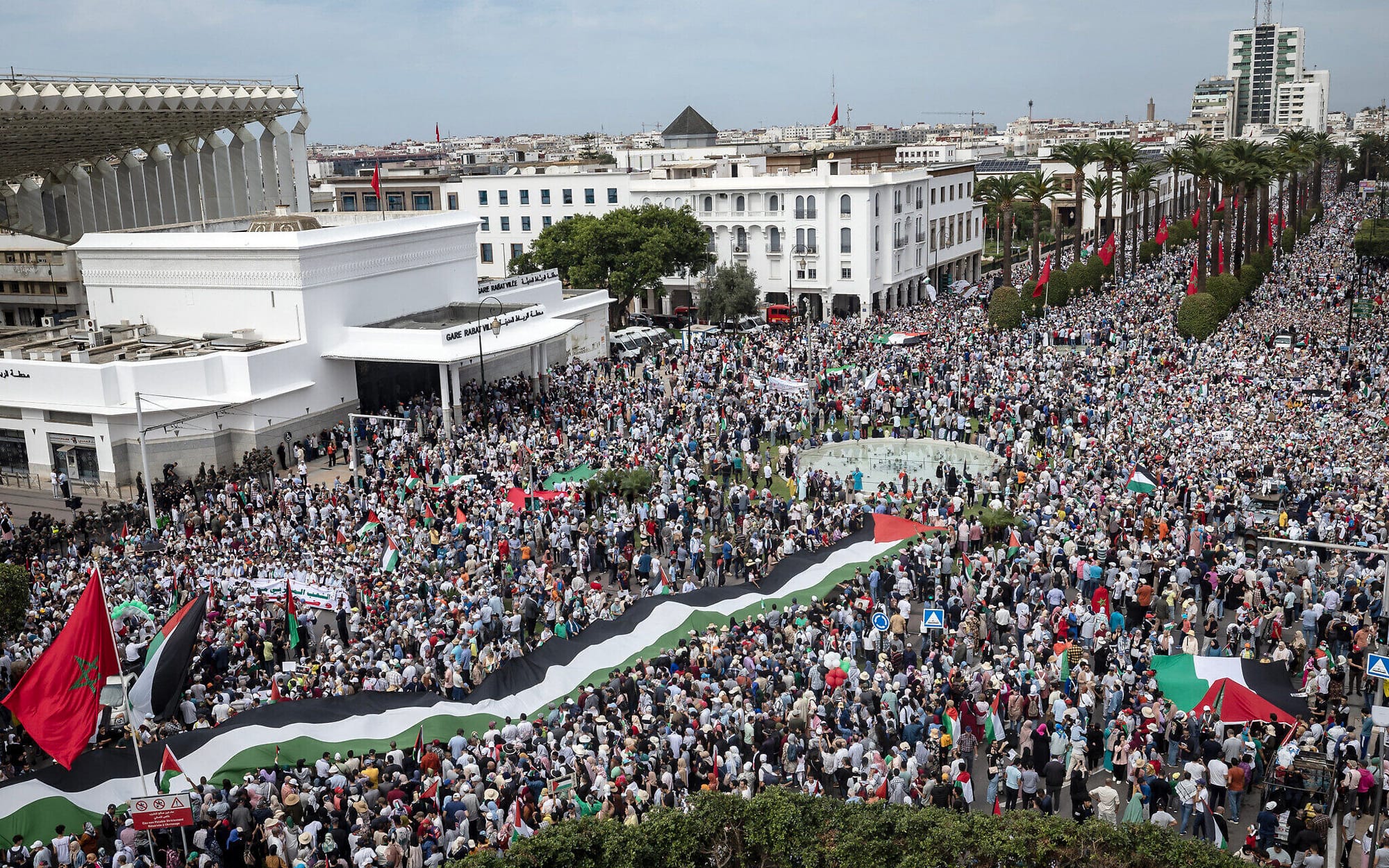
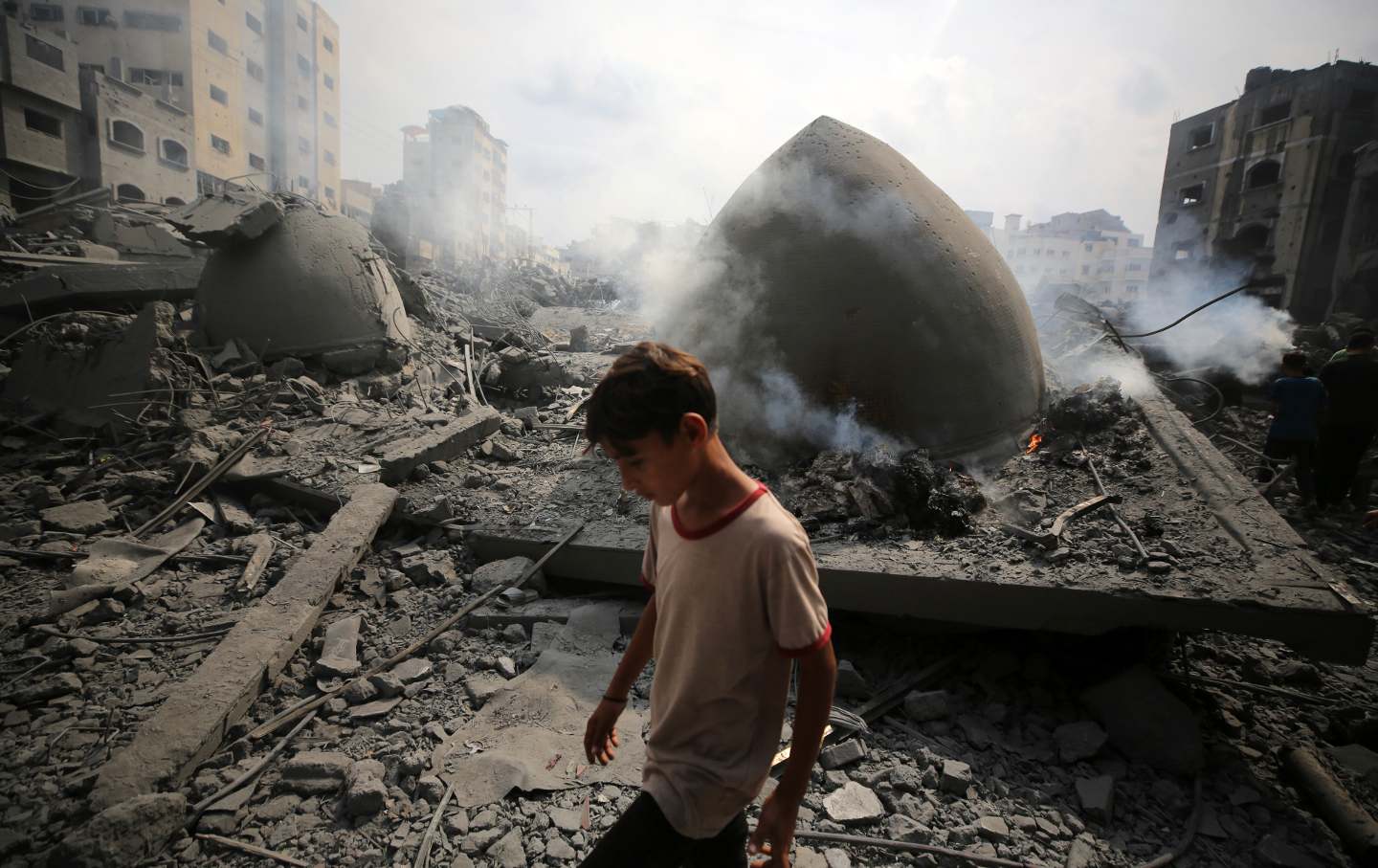
A pro-Palestine protest in Morocco on October 15, 2013 (source) and the damage following an Israeli air strike on a mosque in Gaza City on October 9, 2023 (source)
Mehran: The bombardment of Gaza has been going on for eight weeks. And there have been unprecedented protests for Palestine across the world, almost every day. What role does social media play in getting people onto the streets for this cause?
Lucas: I think the key is the images coming from Gaza on social media, from those being massacred right now. People are enraged, and that powerful emotion drives them to the streets in their hundreds of thousands. Many have participated in protests for the first time in their lives in places like Europe, due to this crisis.
Contrasting Reactions: Israel-Palestine vs. Ukraine
Mehran: As a counterpoint to that, let’s look at the ongoing war in Ukraine, which started in 2022. That also produced many brutal images on social media, from both sides.
Yet unlike Ukraine's war coverage, social media's portrayal of Israel-Palestine seems to elicit stronger, more immediate public responses. What's your read on that?

Lucas: There are a few key differences. The first is geopolitical. In the case of Ukraine, Russia launched an illegal war. But ultimately it's still a conflict between two countries.
That's not what we have in Gaza; Gaza is not a state, it's an occupied territory. It's asymmetrical. It has no comparison to the Russia-Ukraine case.
Also, no-one in the West was cheering on Putin when Russia invaded Ukraine. We didn't arm Russia to carry out this invasion, and we didn't continue to arm them after the invasion happened. Almost without exception, western politicians condemned the Russian invasion, and expressed almost unlimited solidarity with Ukraine, arming that country in order to fight back.
And the mainstream media was following the same line. In many western countries, you can see Ukrainian flags hanging from government buildings. Do you see a Palestinian flag on any public institution when you walk around London, or Germany? No.
Our governments and our mainstream media are cheering on this massacre [in Palestine]. That fact, combined with the images from the ground, doubles the rage that people feel.
The Elite and Public Divide in Western Perception
Mehran: Would you say there’s a split between the people and the elites in the West, when it comes to opinion on this war?
Lucas: Yes, absolutely. Take Germany, for example. From the outside, it seems the majority of the population has an unwavering commitment to the Israeli government. But if you look at polls, that's absolutely not the case.
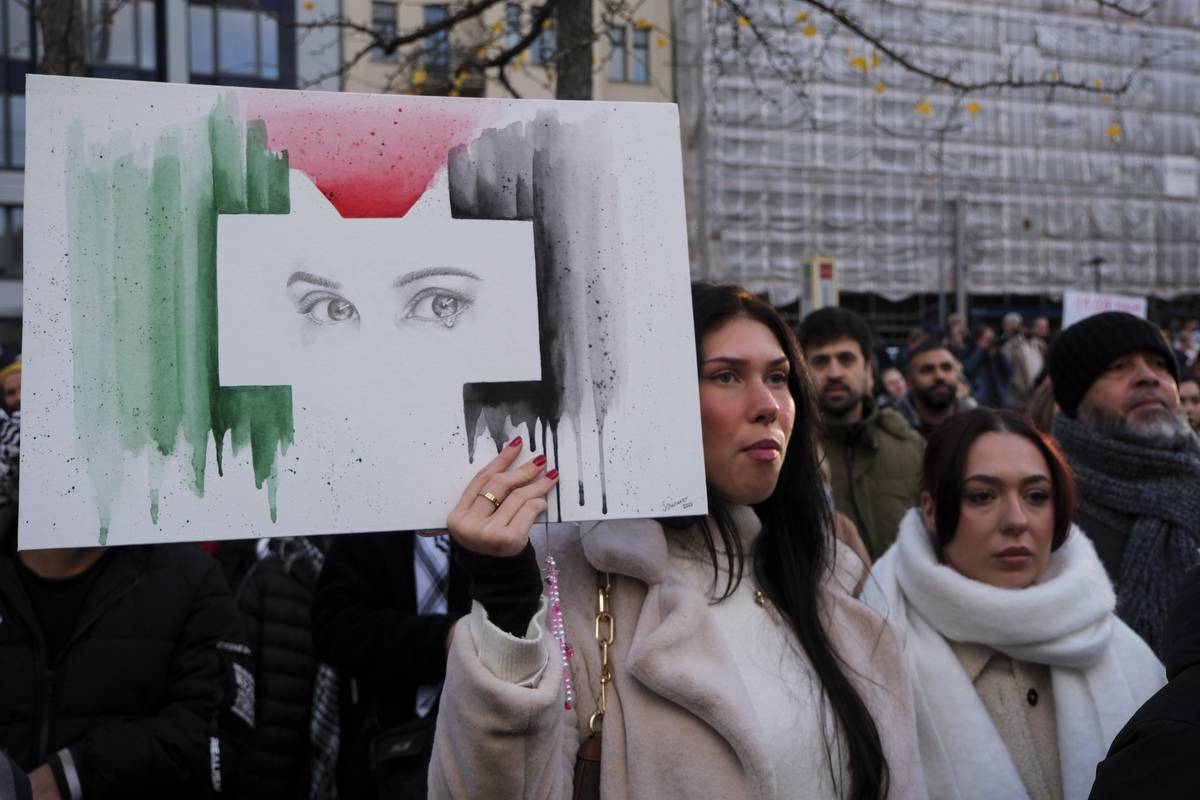
So what's going on? Well, the people in power are, in unison, rabid supporters of the Israeli government and its criminal policies. And so they create a political climate in which [opposing Israel] becomes taboo. Even when those who oppose Israel might be in the majority.
Israel's Faltering Information Strategy
Mehran: You’ve said you think Israel is now losing the information war. Israel has always been a master of propaganda. Whenever Israel-Palestine has exploded, they’ve demonstrated this.
But since October 7, the Israeli state and its supporters seem to have been caught unawares. There’s an unprecedented amount of pushback, online and in the media, for what Israel is doing. What’s different this time?
Lucas: The wheels have come off Israel’s propaganda. The question is: how did this country that, as you said, used to be so good at it, that in large part owes its existence to the competency of its PR operation, get to this point?
One analysis I read made the argument that much like the IDF [Israel Defence Force] got complacent on a military level [during the October 7 attack], so did Israel's propaganda operation. And so this devious sort of misinformation that Israel is well known for, has become a cartoonish, kitsch kind of propaganda. You see it [for example] when their army spokesperson points to a calendar with the names of the week in Arabic, and says these are the names of terrorists.
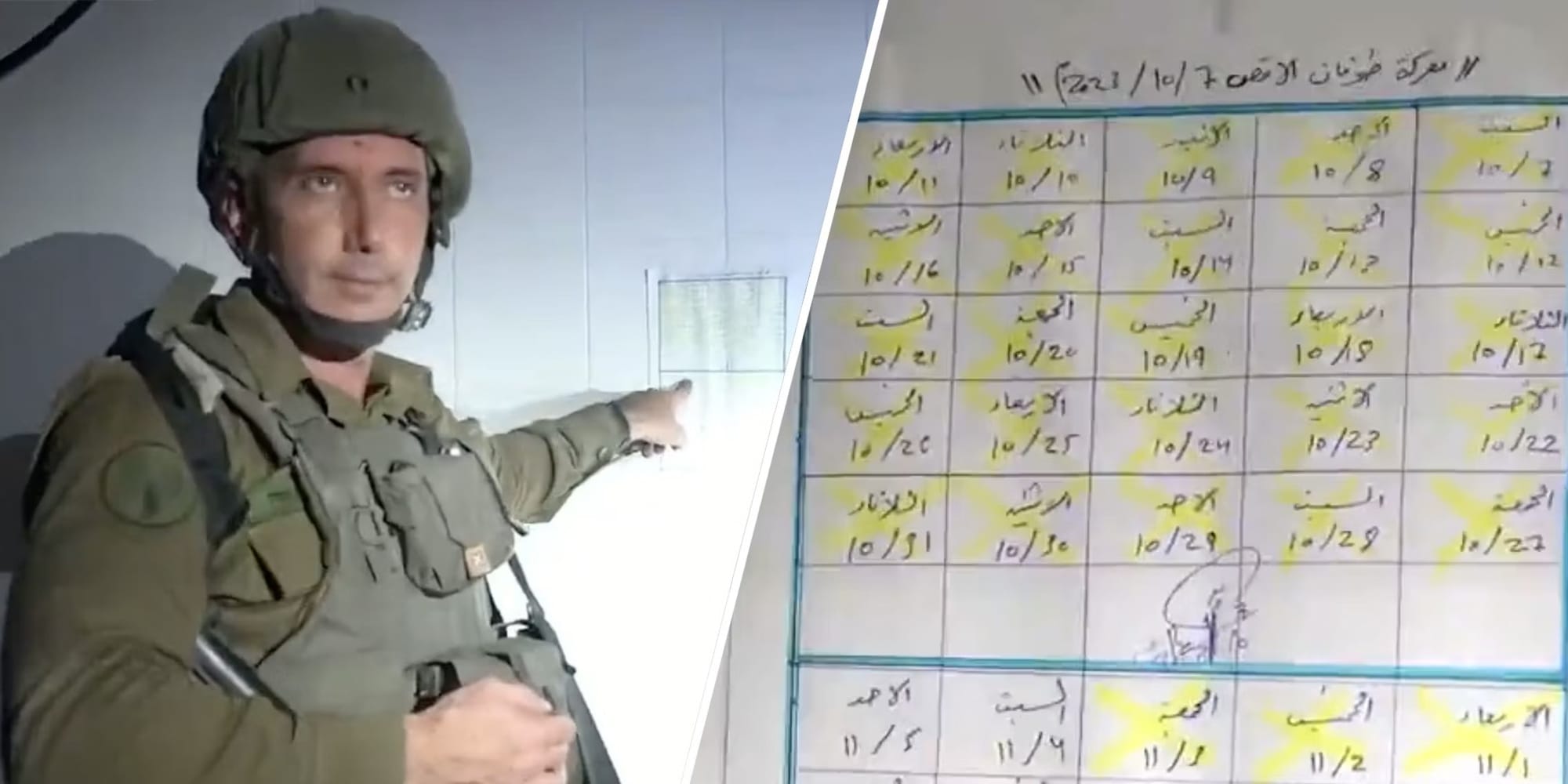
Now, 99% of Israeli propaganda is directed towards the West. The fact that [the Israeli government has] become so lazy is an indictment on us, and our leaders. Because if this propaganda is meant for the West to consume, and it's so blatantly fabricated, that means the Israeli government thinks we're a bunch of idiots.
You'd think that mainstream politicians and media would take offense at that. But they don’t because, well, they’re idiots! They continue to copy and paste [what Israel is putting out] as if it's verified journalism.
[With the calendar incident], the BBC did question Israeli claims [that the Al-Shifa hospital was a Hamas command centre], as did many Western news outlets.
But the biggest newspaper in Germany, Die Zeit, simply published the Israeli press release. So there are still plenty of very high profile news outlets out there that take the bait.
Mehran: What other data points suggest to you that Israel is losing the information war?
Lucas: One thing is the popularity of the hashtags on TikTok. The pro-Palestine ones were around 80 percent more popular than the pro-Israel ones. This is hard data, which takes into account filter bubbles.
The Anti Defamation League [an influential pro-zionist Jewish civil rights group] panicked. According to leaked documents, their president lost his mind, saying [Israel] had a problem with young people. And then [TikTok's] CEO responded with “it's not the algorithm; teens are just pro-Palestine”.
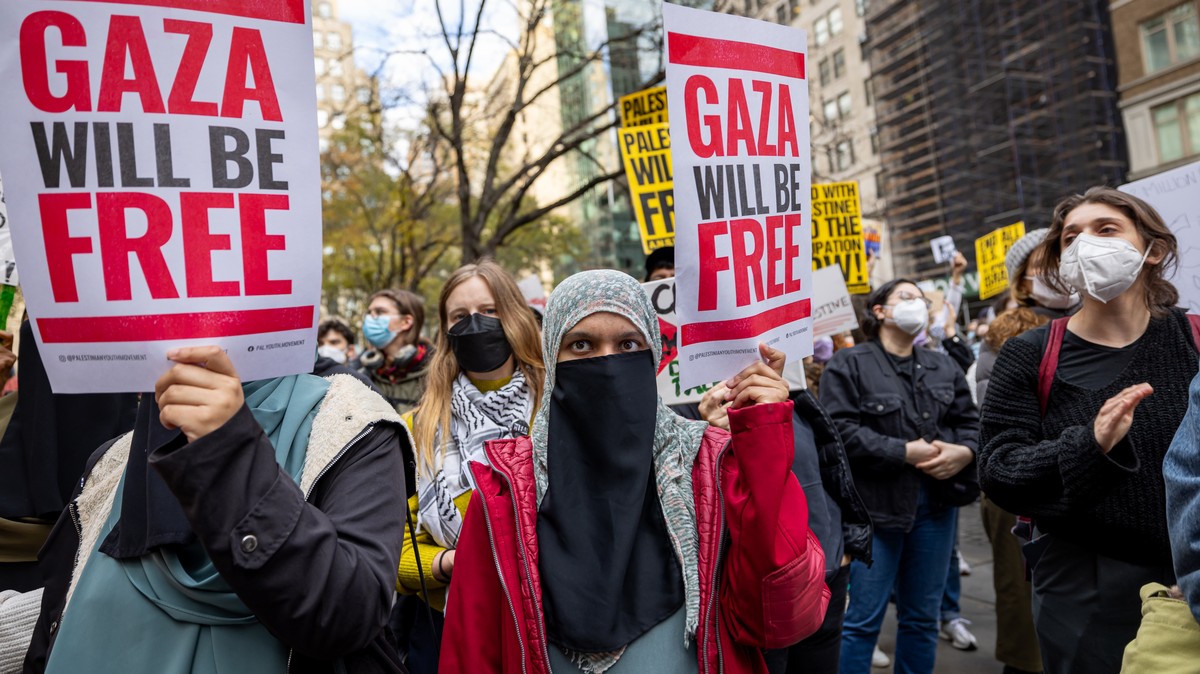
Challenging Anti-Semitism Accusations in Political Debate
Mehran: Let's talk about anti-semitism accusations as a political weapon. My sense is that this charge is losing its teeth as a way to silence criticism of Israel. What’s your take?
Lucas: Accusations of anti-semitism when you criticise the state of Israel and its government have been weaponised for a very long time. It was part of this brilliant PR operation we discussed earlier, that has been at the core of Israeli policy essentially since its inception.
But now I think there's been a decoupling of anti Zionism and anti Semitism in many people's minds. Because they're seeing the evidence that this [Israeli] government is criminal. That it oppresses and massacres people.
But also, because of the absurd levels that the [pro-Israel] people who weaponise this term have taken it to. Like the case here in Berlin of Jewish people being arrested for taking part in pro-Palestine protests.
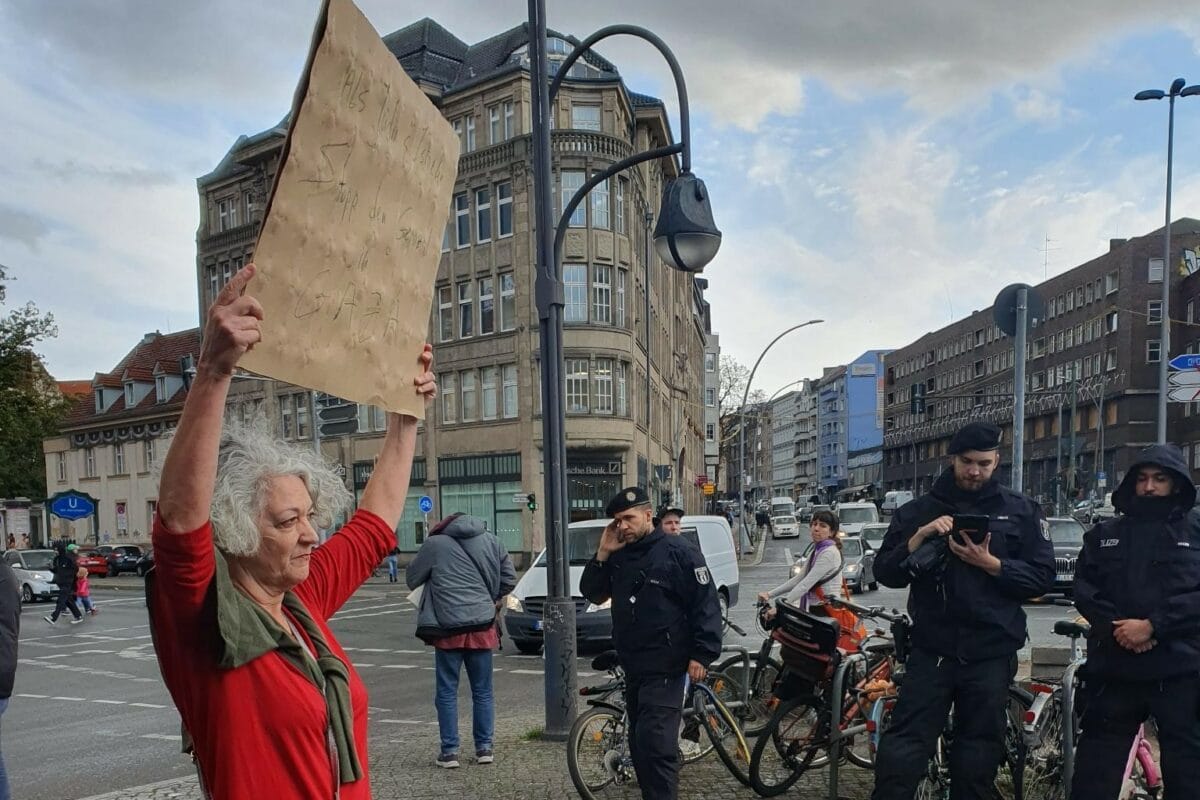
Or the case of the organisation Jewish Voice for a Just Peace, that hosted an event at a cultural centre here in Berlin. I was there. It was a beautiful event. With Jews and Muslims, Israelis and Palestinians standing side-by side talking about lasting peace, about refusing to live in hatred and suspicion of one another. It was exactly what we need in times like these.
And yet Berlin's government claimed the event was antisemitic. And so they now want to close this centre by cutting its public funding.

So when you start seeing cases like these, they're doing your work for you, basically, in trying to expose the absurdity of weaponising anti-semitism. Which is a travesty and a disservice to Jewish people, first and foremost. Because anti-semitism is a very real problem.
Twitter's Role in Shaping Discourse Post-Musk Takeover
Mehran: I wanted to ask you about Twitter. A year ago, Elon Musk – a self-proclaimed 'free speech absolutist' – bought the platform. Previously, US intelligence and the political establishment were closely linked with Twitter, influencing content to shape discourse, especially on topics like COVID, vaccines, and the Ukraine war. Despite our disagreements with Musk, is it possible that the current Twitter debates and images, as we've been discussing, wouldn't have surfaced under the old Twitter regime?
Lucas: No, to be honest. Because these images [of the devastation in Gaza] are still getting out on places like Instagram, Facebook and TikTok. That's not to say that platforms aren't suppressing the images in many cases – they are. But this content is still out there to a pretty staggering degree.
I'm not saying there would be zero difference under the old Twitter regime. It just wouldn't be a game changing one.
Looking Ahead: The Evolving Digital Dynamics of Israel-Palestine
Mehran: OK, so as we come to a close on this, let's look forward. Where do you see things going now? In terms of the social media dynamics around Israel-Palestine, and in terms of how they're impacting the political discussion.
Lucas: I won't make any predictions, because when it comes to Israel-Palestine those usually fail. However, I do get a sense that we're never going back to how the world was before October this year. And I hope that change will result in a resolution to bring freedom in Palestine to all people, Jews and Arabs.
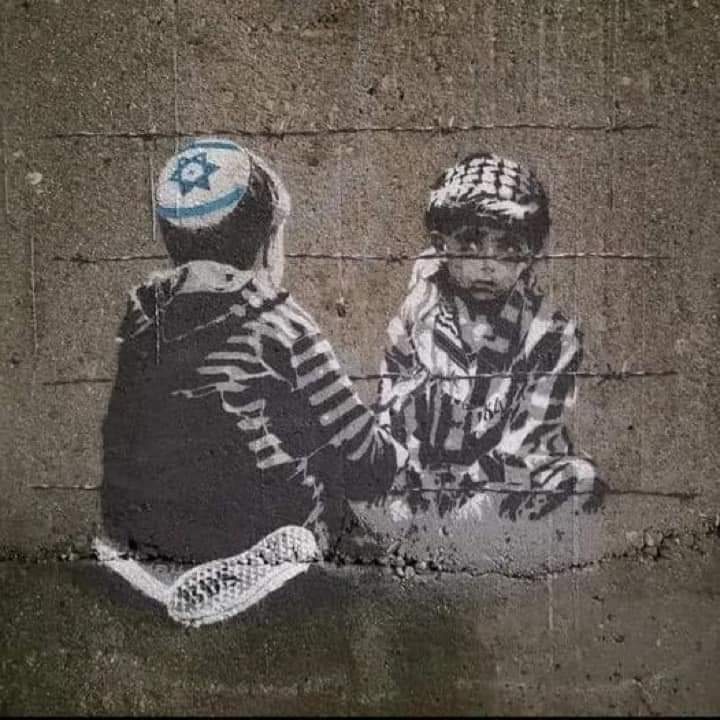
Also, it's important to never underestimate the power of Western public opinion on this issue. It's the West that perpetuates Israel's system of oppression. The minute that public opinion here against the occupation gains critical mass, it's game over for the Israeli government's apartheid. It's game over for this 75-year long injustice going on in Palestine.
We need to make Israel the pariahs they deserve to be. So don't underestimate the power of posting. Post away, post all the time, post in defense of the Palestinian people. Post about the climate of repression that's going on in your countries. And of course don't stop there – mobilise, get onto the streets and try to influence things in other ways as well.
It really will make a difference. If not right now, then in the long term.
* * *






